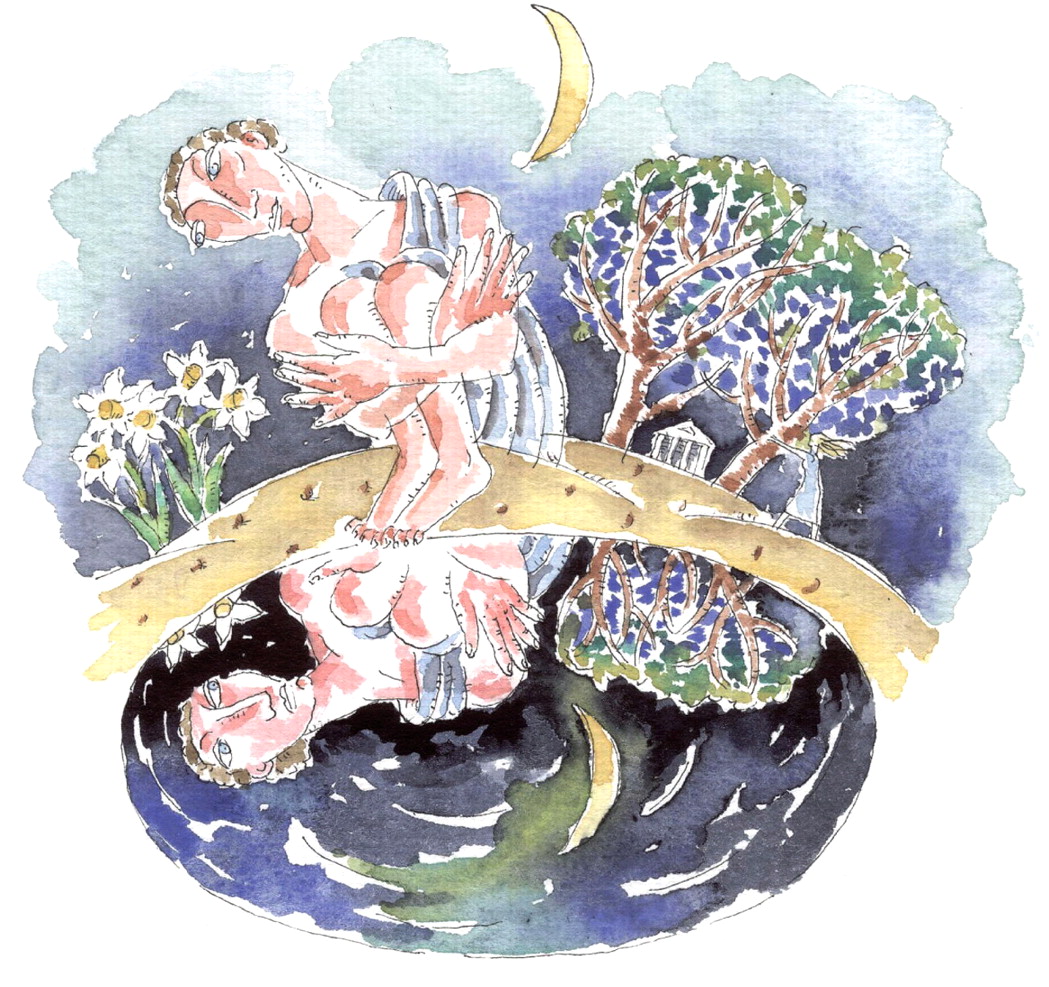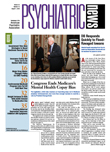According to Greek-Roman mythology, Narcissus was a handsome, vain youth who died from thirst while admiring his reflection in a stream.
If Narcissus lived in America today, he would find a lot of Americans competing for his place beside the stream, a new study suggests.
It found that the lifetime prevalence of narcissistic personality disorder among American adults is 6 percent
Narcissistic personality disorder is characterized by a pervasive pattern of grandiosity, a need for admiration, a lack of empathy, and a tendency to exploit others. But among the 10 personality disorders defined in the DSM-IV-TR, the narcissistic one has received the least scientific attention, Bridget Grant, Ph.D., of the National Institute on Alcohol Abuse and Alcoholism and coworkers found. So they decided to use data derived from the National Epidemiologic Survey on Alcohol and Related Conditions, conducted from 2004 to 2005, to learn more about the lifetime prevalence of the disorder.
The survey had included a representative sample of the civilian, noninstitutionalized adult population of the United States, 18 years of age and older. Some 35,000 Americans were interviewed face to face with the Wave 2 Alcohol Use Disorder and Associated Disabilities Interview Schedule—DSM-IV Version, a structured diagnostic interview yardstick designed for use by experienced lay interviewers.
The major finding of Grant and her group—that the lifetime prevalence of narcissistic personality disorder among American adults is 6 percent—means that “the disorder is a prevalent personality disorder in the general American population,” they wrote in their study report, which was posted online in the Journal of Clinical Psychiatry on June 10.
(The estimated lifetime prevalence of some other DSM-IV psychiatric disorders in American adults is 2 percent for obsessive-compulsive disorder, 4 percent for bipolar disorder, 6 percent for generalized anxiety disorder, 13 percent for alcohol abuse, and 17 percent for major depressive disorder, according to the National Co-morbidity Survey Replication, which was published in 2005.)
Also, the researchers came up with other interesting findings about the life-time prevalence of the disorder as well. For example,
•
The lifetime prevalence of the disorder was significantly greater among men than among women (8 versus 5 percent).
•
The lifetime prevalence of the disorder was significantly greater among younger adults than among older ones (suggesting that the disorder may be less chronic than previously thought); and among individuals who were separated, divorced, widowed, or never married than among those who were married; and among black men, black women, and Hispanic women than among Hispanic men or among whites, Asians, or Native Americans of either gender.
•
When researchers considered sociodemographic characteristics as well as the life-time prevalence of other psychiatric disorders, they found that the lifetime psychiatric disorders most strongly linked with narcissistic personality disorder were schizotypal personality disorder and borderline personality disorder. Persons with a schizotypal personality had a sixfold greater chance of also having a narcissistic personality than did persons without a schizotypal personality. Persons with a borderline personality had a sevenfold greater chance of also having a narcissistic personality than did persons without a borderline personality.
•
When sociodemographic factors as well as comorbidity of various Axis I disorders during the year prior to the study were considered, narcissistic personality disorder remained significantly linked with substance use disorder, major depressive disorder, bipolar I disorder, any anxiety disorder, specific phobia, generalized anxiety disorder, and posttraumatic stress disorder.
•
Perhaps their most intriguing findings were that narcissistic men were significantly less likely to have dysthymic disorder than non-narcissistic men were, and narcissistic women were significantly less likely to have dysthymic disorder than non-narcissistic women were.
Why might this be so? Narcissistic men might use substances to protect a very fragile self-esteem and to maintain a sense of omnipotence and grandiosity, Grant and her team proposed. Such substance use, they speculated, might then shield narcissistic men from the chronically depressed moods that are the hallmark of dysthymia. But why narcissistic women are unlikely to experience dysthymia is “less clear,” they said.
The study was funded by the National Institute on Alcohol Abuse and Alcoholism and the National Institute on Drug Abuse.

